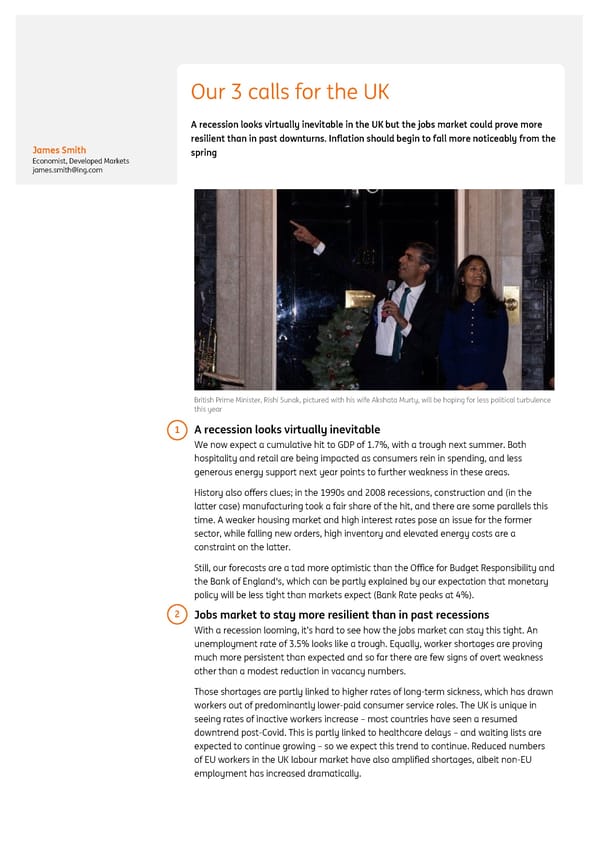ING global economic outlook 2023 December 2022 Our 3 calls for the UK A recession looks virtually inevitable in the UK but the jobs market could prove more resilient than in past downturns. Inflation should begin to fall more noticeably from the James Smith spring Economist, Developed Markets [email protected] British Prime Minister, Rishi Sunak, pictured with his wife Akshata Murty, will be hoping for less political turbulence this year 1 A recession looks virtually inevitable We now expect a cumulative hit to GDP of 1.7%, with a trough next summer. Both hospitality and retail are being impacted as consumers rein in spending, and less generous energy support next year points to further weakness in these areas. History also offers clues; in the 1990s and 2008 recessions, construction and (in the latter case) manufacturing took a fair share of the hit, and there are some parallels this time. A weaker housing market and high interest rates pose an issue for the former sector, while falling new orders, high inventory and elevated energy costs are a constraint on the latter. Still, our forecasts are a tad more optimistic than the Office for Budget Responsibility and the Bank of England's, which can be partly explained by our expectation that monetary policy will be less tight than markets expect (Bank Rate peaks at 4%). 2 Jobs market to stay more resilient than in past recessions With a recession looming, it’s hard to see how the jobs market can stay this tight. An unemployment rate of 3.5% looks like a trough. Equally, worker shortages are proving much more persistent than expected and so far there are few signs of overt weakness other than a modest reduction in vacancy numbers. Those shortages are partly linked to higher rates of long-term sickness, which has drawn workers out of predominantly lower-paid consumer service roles. The UK is unique in seeing rates of inactive workers increase – most countries have seen a resumed downtrend post-Covid. This is partly linked to healthcare delays – and waiting lists are expected to continue growing – so we expect this trend to continue. Reduced numbers of EU workers in the UK labour market have also amplified shortages, albeit non-EU employment has increased dramatically.
 ING Global Economic Outlook 2023 Page 28 Page 30
ING Global Economic Outlook 2023 Page 28 Page 30